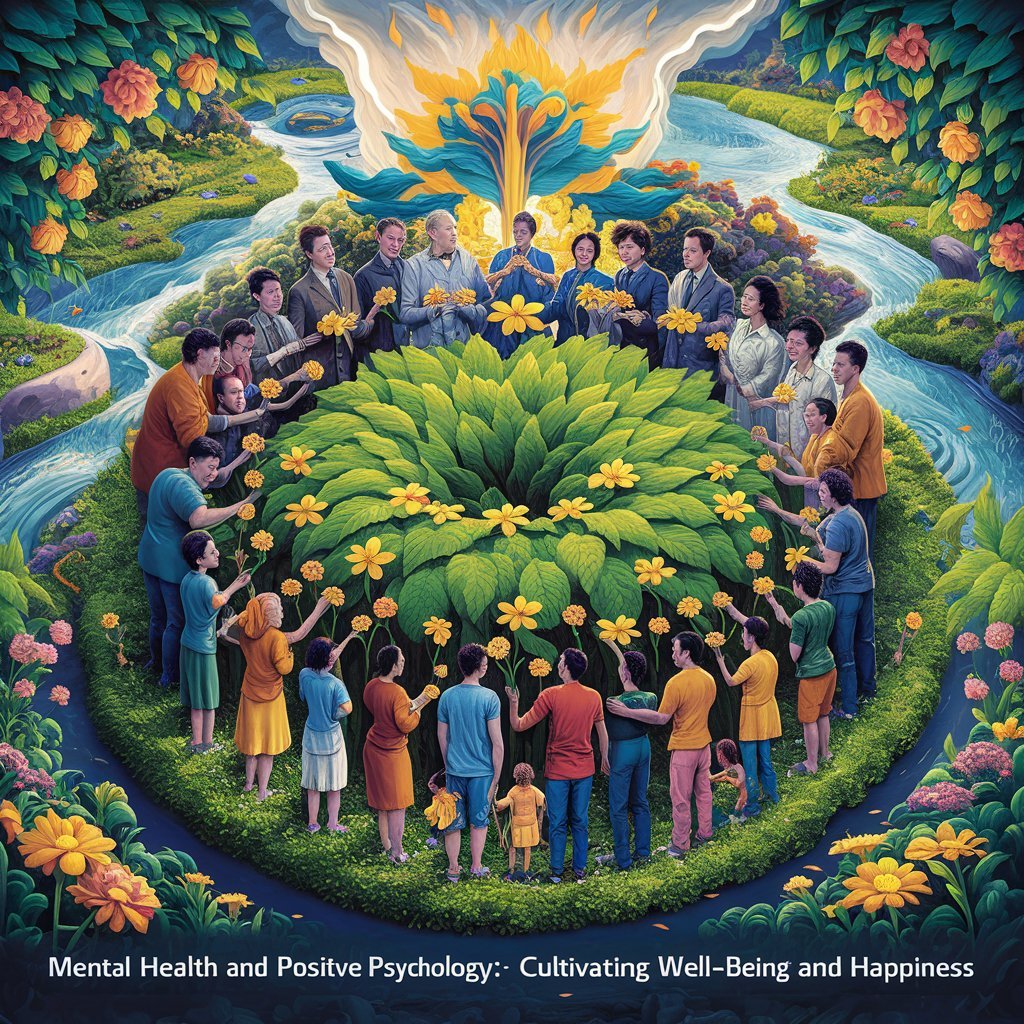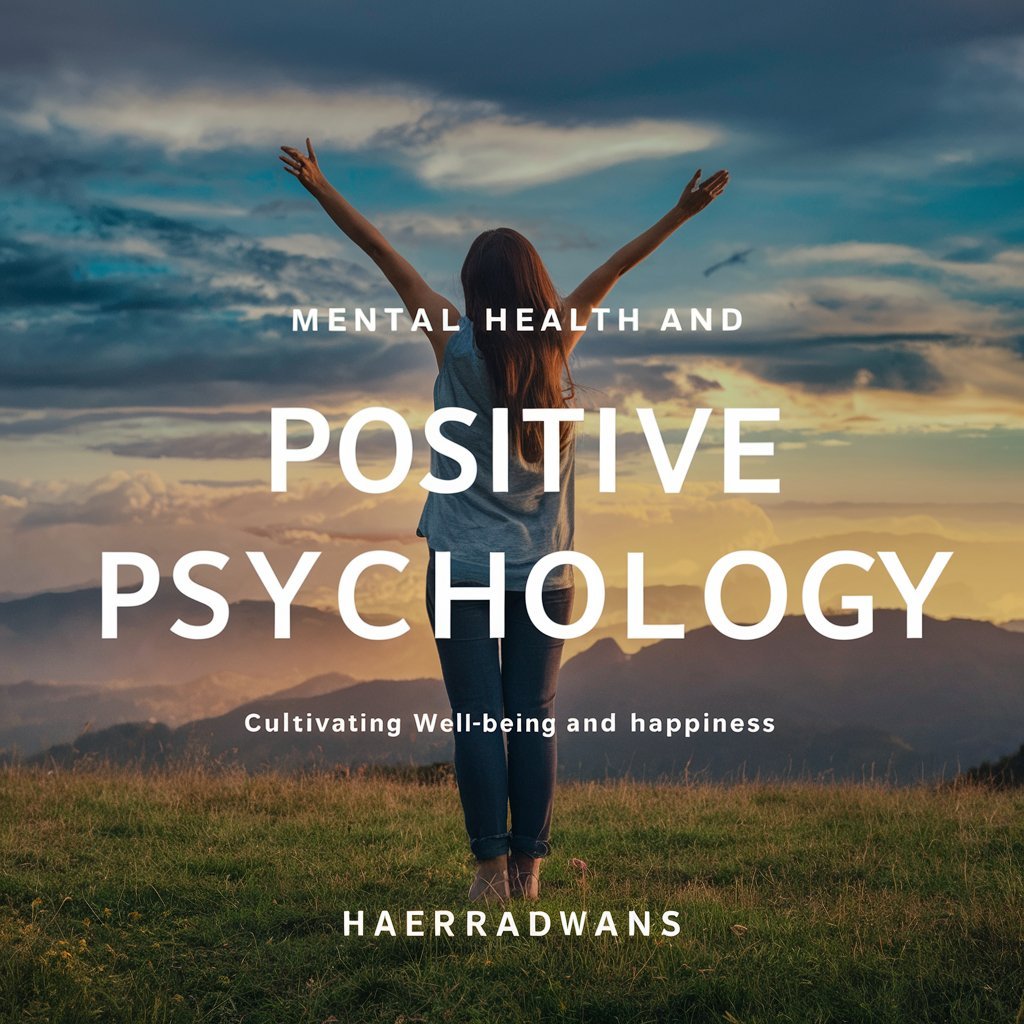Mental Health and Positive Psychology: Cultivating Well-being and Happiness
Hey there, my young and curious friends! It’s your mental health buddy, Nita Sharda, here to talk about a topic that’s all about feeling good and living our best lives – mental health and positive psychology, and how we can cultivate well-being and happiness in our everyday experiences.
Now, I know that when we think about mental health, we often focus on the challenges and struggles that people might face. And while it’s super important to talk about those things and make sure that everyone gets the support they need, it’s also important to remember that mental health isn’t just about avoiding problems – it’s about actively promoting positive emotions, experiences, and ways of thinking.
And that’s where positive psychology comes in! Positive psychology is all about studying the things that make life worth living – the strengths, virtues, and experiences that help us thrive and be our best selves.
So today, we’re going to explore the world of positive psychology and how we can use its principles to cultivate more well-being and happiness in our own lives. We’ll talk about the science of happiness, the importance of gratitude and kindness, the power of mindfulness and self-care, and so much more!
The Science of Happiness
First, let’s dive into the science of happiness and what research tells us about what really makes us feel good.
Positive Emotions and Well-being One of the key ideas in positive psychology is that positive emotions – like joy, love, and contentment – are not just nice to have, but are actually essential for our overall well-being and happiness.
Research has shown that people who experience more positive emotions tend to have:
- Better physical health and longer lifespans
- Stronger relationships and social connections
- More resilience in the face of stress and challenges
- Higher levels of creativity, productivity, and success
So, how can we cultivate more positive emotions in our lives? Here are a few tips:
- Practice gratitude by taking time each day to think about the things you’re thankful for, big or small
- Engage in activities that bring you joy and meaning, whether that’s playing a sport, making art, or spending time with loved ones
- Celebrate your accomplishments and successes, no matter how big or small
- Surround yourself with positive and supportive people who lift you up and make you feel good
The Power of Positive Thinking

Another key idea in positive psychology is the power of positive thinking – the idea that our thoughts and beliefs can shape our experiences and outcomes in life.
Research has shown that people who have a more positive and optimistic outlook tend to:
- Have better mental and physical health outcomes
- Be more resilient in the face of stress and challenges
- Have more successful relationships and careers
- Experience more positive emotions and life satisfaction
So, how can we cultivate a more positive mindset? Here are a few strategies:
- Practice self-compassion by being kind and understanding towards yourself, even when things are tough
- Challenge negative self-talk and replace it with more realistic and empowering thoughts
- Focus on your strengths and the things you’re good at, rather than dwelling on your weaknesses or mistakes
- Surround yourself with positive and inspiring messages, whether that’s through books, podcasts, or social media accounts that uplift you
By shifting our thoughts and beliefs in a more positive direction, we can start to change the way we experience the world around us and cultivate more happiness and well-being in our lives.
Gratitude and Kindness
Another key aspect of positive psychology is the importance of gratitude and kindness – two simple but powerful practices that can have a big impact on our happiness and well-being.
The Benefits of Gratitude Gratitude is all about focusing on the good things in our lives and expressing appreciation for them. Research has shown that practicing gratitude can:
- Increase positive emotions and life satisfaction
- Strengthen relationships and social connections
- Improve physical health outcomes, like better sleep and lower blood pressure
- Boost resilience and coping skills in the face of stress and challenges
So, how can we cultivate more gratitude in our lives? Here are a few ideas:
- Keep a gratitude journal where you write down a few things you’re thankful for each day
- Express appreciation to the people in your life, whether through a heartfelt thank-you note or a simple verbal acknowledgment
- Take time to savor and appreciate the good moments and experiences in your life, no matter how small
- Practice mindfulness by paying attention to the present moment and noticing the good things around you
The Power of Kindness Kindness is all about doing things to help and support others, without expecting anything in return. Research has shown that practicing kindness can:
- Increase positive emotions and life satisfaction
- Strengthen relationships and social connections
- Reduce stress and improve mental health outcomes
- Create a ripple effect of positivity and goodwill in the world around us
So, how can we cultivate more kindness in our lives? Here are a few ideas:
- Look for opportunities to help others, whether through volunteering, donating, or simply lending a listening ear
- Practice random acts of kindness, like leaving a nice note for someone or buying coffee for the person behind you in line
- Be kind to yourself by practicing self-care and self-compassion, and treating yourself with the same kindness and respect you would show to a good friend
- Spread kindness in your community by starting a kindness project or challenge, like a “pay it forward” campaign or a neighborhood cleanup day
By making gratitude and kindness a regular part of our lives, we can create more positive emotions, stronger relationships, and a greater sense of meaning and purpose in the world around us.
Mindfulness and Self-Care
Another important aspect of positive psychology is the practice of mindfulness and self-care – two powerful tools for cultivating well-being and happiness in our lives.
The Benefits of Mindfulness Mindfulness is all about being present and fully engaged in the current moment, without judgment or distraction. Research has shown that practicing mindfulness can:
- Reduce stress and anxiety
- Improve focus and concentration
- Increase self-awareness and emotional regulation
- Enhance overall well-being and life satisfaction
So, how can we cultivate more mindfulness in our lives? Here are a few tips:
- Take a few minutes each day to sit quietly and focus on your breath, noticing any thoughts or sensations that arise without getting caught up in them
- Engage in mindful activities like yoga, tai chi, or meditation, which can help calm the mind and body
- Practice mindful eating by paying attention to the flavors, textures, and sensations of your food, and eating slowly and without distraction
- Take mindful breaks throughout the day, where you step away from screens and devices and simply take a few deep breaths and notice your surroundings
The Importance of Self-Care Self-care is all about taking intentional steps to support our physical, mental, and emotional well-being. It’s about treating ourselves with kindness and compassion, and making sure we have the resources and support we need to thrive.
Research has shown that practicing self-care can:
- Reduce stress and prevent burnout
- Improve mental and physical health outcomes
- Increase resilience and coping skills
- Enhance overall well-being and life satisfaction
So, how can we cultivate more self-care in our lives? Here are a few ideas:
- Make time for activities that bring you joy and relaxation, like reading, taking a bath, or spending time in nature
- Prioritize sleep, nutrition, and exercise as essential components of your self-care routine
- Set boundaries and learn to say no to things that drain your energy or don’t align with your values
- Seek support from friends, family, or mental health professionals when you need it, and don’t be afraid to ask for help
By making mindfulness and self-care a regular part of our lives, we can cultivate greater resilience, well-being, and happiness, and show up as our best selves in the world around us.
Putting it All Together
Whew, we’ve covered a lot of ground today, my young friends! We’ve talked about the science of happiness, the power of positive thinking, the importance of gratitude and kindness, and the benefits of mindfulness and self-care.
But I know that sometimes, all of this information can feel a little overwhelming, especially when we’re just starting out on our journey towards greater well-being and happiness.
So, I want to leave you with a few simple tips and reminders that you can take with you as you go about your day-to-day life:
- Remember that happiness is a choice and a practice, not just a destination. It’s something we can cultivate and work towards every day, through small acts of positivity and self-care.
- Focus on the things you can control, like your thoughts, actions, and responses to the world around you. Let go of the things you can’t control, and trust that everything will work out in the end.













Leave a Reply